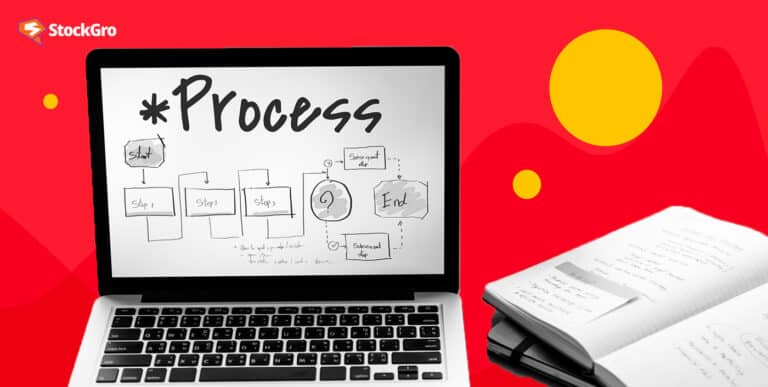
Financial agility is often the deciding factor in the ever-changing business world. In this respect, the commercial loan has been an essential financial instrument. Commercial loans are crucial because they help businesses grow, take advantage of opportunities, and weather tough times. They are more than just financial tools; they can propel a company to new heights.
This article explores commercial loans in detail, explaining what they are, how they function, and how they can revolutionise companies.
What is a commercial loan?
The basic tenet of any commercial loan is the existence of an agreement between a lending institution and a business seeking financing. Its purpose is to provide a helping hand to companies in meeting their operational expenses, buying necessary equipment, or growing their operations.
Commercial loans are designed to meet the needs of businesses, as opposed to personal loans that are more commonly used for individual needs or expenses.
Business loans typically have stricter requirements and a higher loan amount than personal loans. The lender’s risk tolerance, the company’s credit history, and financial health are the main factors that decide the commercial loan interest rates, repayment period, and collateral requirements.
Types of commercial loans
Businesses can choose from a variety of commercial loans to meet their specific requirements. Here are a few:
Term loans: These are standard loans that give companies a fixed amount of money upfront and then require repayment with interest over a predetermined time frame. They are used frequently for substantial investments or purchases.
Short-term loans: While comparable to term loans, the repayment periods for these loans are usually shorter. For short-term cash flow problems or unexpected expenses, they are usually helpful.
Lines of credit: With this type of loan, businesses can access funds up to a specific limit whenever they need them. It helps them better manage cash flow and unforeseen costs.
Equipment financing: The equipment itself will be used as collateral for this loan, and its sole purpose will be to finance its purchase. For businesses that require expensive machinery or software, this is a win-win.
Commercial real estate loans: The acquisition or improvement of commercial real estate is the common use of these loans. In most cases, the property is used as security for the loan.
How do commercial loans work?
Commercial loans work through a process that involves several key steps. Here’s a simplified overview:
Application: A financial institution receives the business’s loan application, which details the loan’s intended use, the company’s financial situation, and other relevant documents.
Evaluation: The application is reviewed by the lender, who takes into account the company’s financial records, cash flow, collateral, and overall creditworthiness. In order to assess the lender’s risk and possible return, this step frequently incorporates a commercial loan calculation.
Approval and terms: Lenders typically provide loan details, such as interest rate, repayment dates, fees, and conditions, after they approve an application.
Funding: As soon as the conditions are finalised, the lender disburses the funds, which the company can utilise as intended.
Repayment: In accordance with the predetermined plan, the company pays back the loan in instalments.
Also read: The pros and cons of investing in floating-rate fixed deposits
Eligibility criteria
It is important to understand the eligibility criteria when considering a commercial loan. These may be different from one lender to another, but some common criteria are as follows:
Applicant’s age: In order to qualify for the loan, the applicant must be at least 21 years old and no more than 65 years old.
Business age and stability: There is typically a minimum operational period of one to three years that lenders ask for when approving a business loan. Businesses with a history of consistent success are the ones they favour when making loans.
Business type: Financial institutions often have vested interests in the industries to which they extend credit. Certain industries or sectors may have stricter regulations that impact eligibility or be deemed as having a higher risk.
Annual revenue: Lenders determine the company’s financial health and ability to repay loans based on its yearly revenue or turnover. Minimum revenue requirements vary amongst lenders.
Credit score and history: The personal credit history of the owner or owners, in addition to the company’s credit score and history, is usually checked by lenders. Loan approval chances are higher for borrowers with high credit scores because they indicate a pattern of prompt payments.
Financial statements and documents: Balance sheets, income statements, and cash flow statements are some of the financial documents that lenders typically ask for in order to evaluate a company’s financial health. Bank records, tax returns, company licences, and other legal papers may also be requested.
Collateral: Lenders may ask for collateral—in the form of property, equipment, or inventory—to safeguard a loan, though this varies by loan amount and type.
Debt-to-income ratio: Financial institutions check a company’s debt-to-income ratio to see if it can handle more debt. Loan approval prospects are higher for borrowers with lower debt-to-income ratios.
Documents required for business loan
Identity verification: This can be established with documents such as a passport, voter’s ID, driving licence, PAN card, or Aadhar card.
Address confirmation: Recent utility bills, ration card, or passport can serve as proof of residence.
Income evidence: Salary slips from the past six months, bank statements from the last six months, and the current year’s Form 16 are usually required to verify income.
Lease documentation: If applicable, all lease-related documents should be provided.
Commercial loans benefits
Here are some key benefits of commercial loans:
- Access to capital: Companies can get the money they need for operations, growth, or unforeseen costs through commercial loans.
- Cash flow management: They aid businesses in controlling their cash flow during slow periods.
- Business growth: The capital required for expansion, new hires, or product launches can be supplied by commercial loans, which in turn fuel company growth.
- Asset acquisition: You can use them to buy property or equipment that your company needs.
- Flexible terms: Any company in need of operating capital can benefit from a commercial loan. These loans typically offer flexible terms and repayment options.
- Credit building: If a company pays back its commercial loan on time, it will improve its credit score, which will be useful for when it needs more money.
Also read:What does a credit report contain? Here is everything you should know!
Commercial loans risks and considerations
Businesses can get the money they need to expand and thrive with commercial loans, but there are a lot of factors to think about and risks to take into account before applying.
Debt burden: If the company’s income drops or its expenses rise, it might put its ability to repay the loan at risk.
Collateral risk: Lenders often demand collateral for business loans, which they may acquire outright if the borrower defaults. Some of the company’s most prized possessions might disappear if this happens.
Interest rate risk: If the interest rate were to increase, the overall cost of the loan would be affected, in the case of variable interest rate loans.
Prepayment penalties: Prepayment penalties are imposed by certain loan providers. Because of this, a company may find it expensive to repay the loan early or refinance.
Impact on credit score: Failure to repay a loan as agreed upon can have a negative effect on a company’s credit score, making future financing more difficult to secure.
Consider these risks thoroughly and talk to a financial advisor before you apply for a business loan. Additionally, before signing the loan agreement, carefully consider all of its terms and ensure affordability.
Also read:Interest rate risk – Meaning and risk management strategies.
Bottomline
Commercial loans can be a great resource for companies looking to grow and expand. However, there are risks associated with them. Businesses must thoroughly understand these risks before committing to a commercial loan.
Your company can use a commercial loan as an elevator to greater success with the right strategy and administration. Keep in mind that the ideal loan for your company is the one that is tailored to its particular needs and circumstances.

